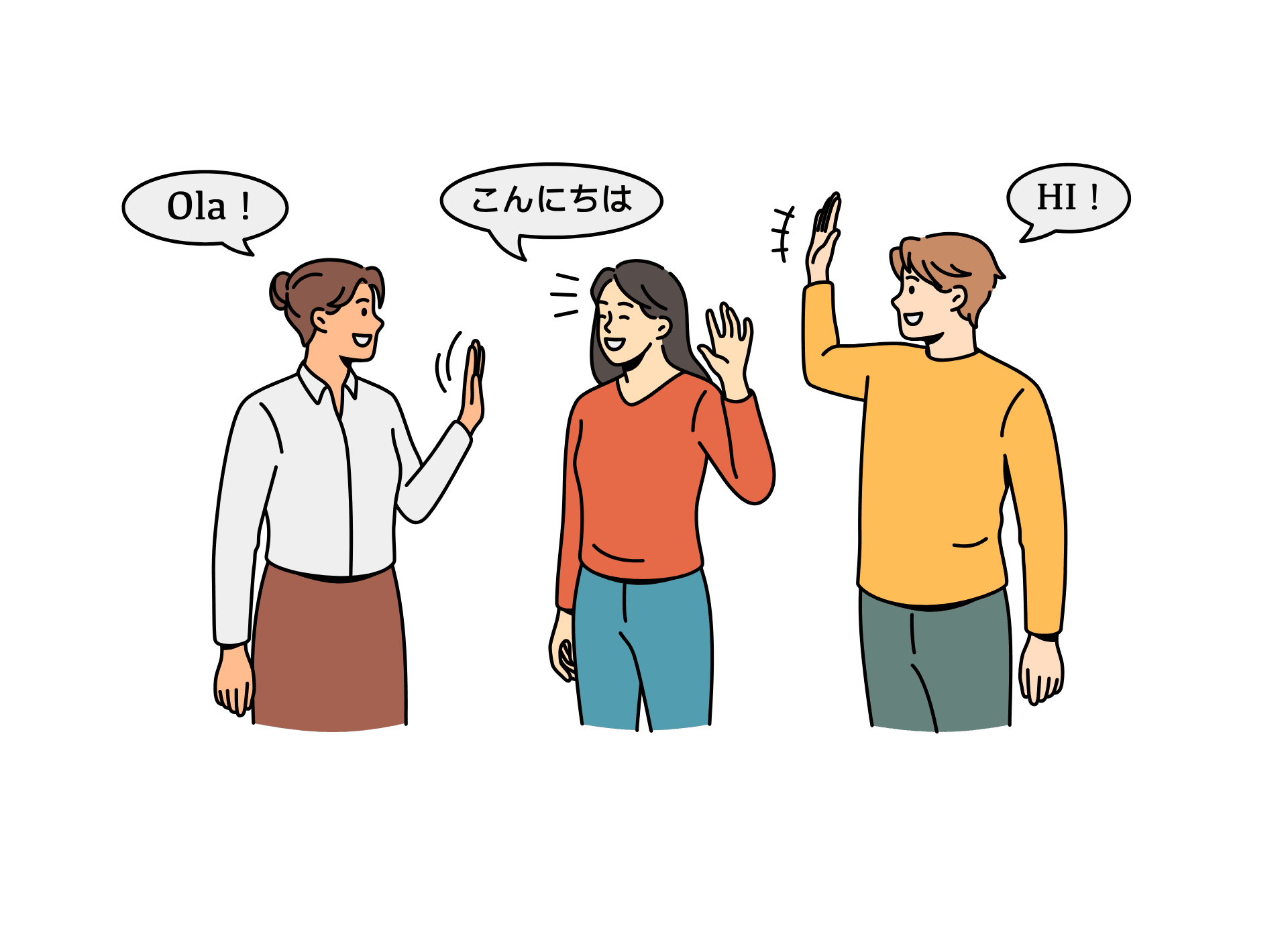発音だけでなく“思い”を伝えるあいさつ表現の大切さ
こんにちは。ご訪問ありがとうございます。
今日は、旅行の感想を言う会話のレッスンでした。シーンは、旅行から帰ってきたところから始まります。
「ただいま」「おかえりなさい」。このあいさつから始まりました。
「おかえりなさい」が少し難しかったようで、何度も練習しました。今日はしませんでしたが、「いってらっしゃい」も発音がむずかしく練習が必要なあいさつだと思います。
むずかしい言葉は、くりかえすと上手く発音できるようになりますが、そこだけに集中するのではなく、言葉の成り立ちや思いを理解して使えるようになってほしいなと思います。「いってらっしゃい」「お帰りなさい」なども、それぞれ、成り立ちが複雑で、ことばに思いや気持ち、優しさが含まれていますね。また、使う場面の理解も必要ですよね。
あいさつができるかどうかで、最初の印象も変わります。あいさつができたら、そこから色んなことが始まります。生活していく上でほんと大切なことばです。こころを込めてあいさつができれば通じることもあります。
単に、発音できるようにとか、英語で意味を伝えるだけでなく、日本語の気持ちも一緒につたえていければと思います。
では、もうすぐ連休です。
今週ももうひと頑張りです!

The importance of greeting expressions that convey not only pronunciation but also sentiment
Hello, and thank you for visiting.
Today’s lesson was about having a conversation to share impressions of a trip.
The scene began right after returning from a journey.
It started with the greetings, “Tadaima” (“I’m home”) and “Okaerinasai” (“Welcome back”).
It seemed that “Okaerinasai” was a bit difficult, so we practiced it many times.
We didn’t do it today, but I think “Itterasshai” (“Take care and come back safely”) is also a greeting that requires practice because of its tricky pronunciation.
When we repeat difficult words, we eventually learn to pronounce them well.
However, I hope learners don’t just focus on pronunciation — I’d like them to understand the background, meaning, and feelings behind the words, too.
Expressions like “Itterasshai” and “Okaerinasai” have complex origins and carry kindness and emotional warmth within them.
It’s also important to understand the situations in which these greetings are used.
Whether or not we can greet someone properly greatly affects the first impression we make.
Once we can greet someone, many things can begin from there.
Greetings are truly essential in daily life.
Heartfelt greetings can still be understood and appreciated.
I hope that, instead of only focusing on pronunciation or conveying meanings in English, we can also communicate the Japanese spirit and feelings behind the words.
Well, the long weekend is coming soon.
Let’s hang in there and do our best for the rest of this week!



 Contact
Contact